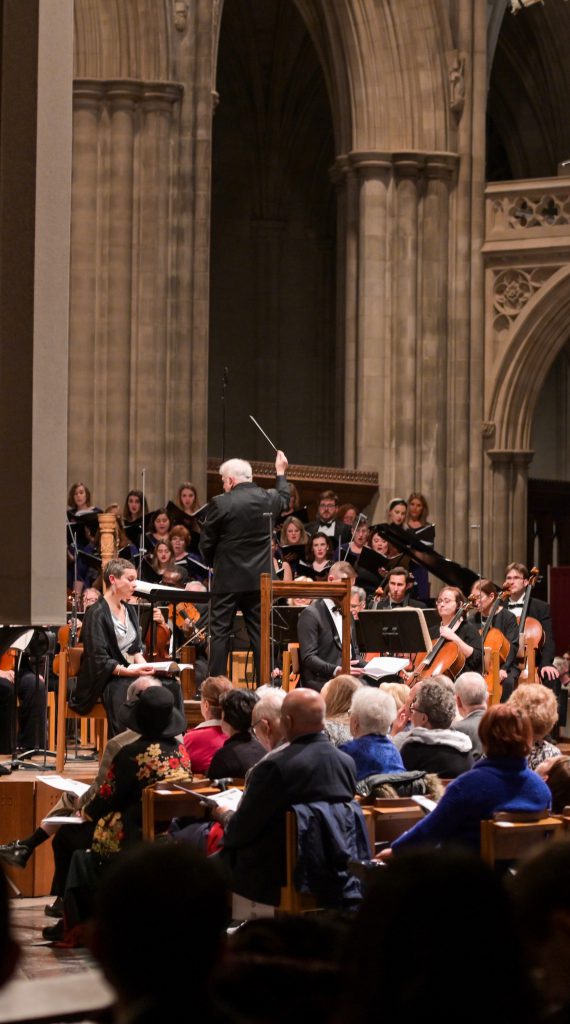Top Ten Performances of 2018
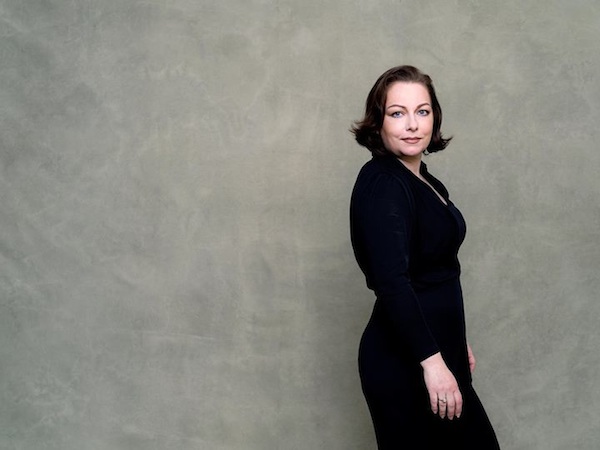
Dorothea Röschmann
1. Dorothea Röschmann. Vocal Arts DC
The esteemed German soprano returned to Washington for the first time since 2006. Her recital on the Vocal Arts DC series stood out for music she has not recorded before, including Mahler’s Rückert-Lieder and Wagner’s Wesendonck Lieder. Her impeccably suspended performance of Mahler’s “Ich bin der Welt abhanden gekommen” had just the right sense of stillness and serenity, with each phrase, each word imbued with celestial immutability.
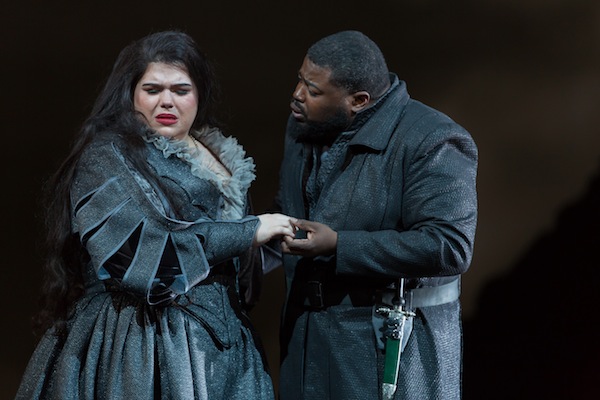
Leah Crocetto and Russell Thomas in Verdi’s “Don Carlo” at Washington National Opera. Photo: Scott Suchman
2. Verdi: Don Carlo. Washington National Opera
A superb Verdi conductor, Philippe Auguin was positioned optimally to take advantage of a top-notch casting. At the top reigned Jamie Barton as a brazen Eboli, and soprano Leah Crocetto showed both saintly reserve and elegant authority as Elisabetta. Tenor Russell Thomas made a blockbuster company debut in the title role, noteworthy for suave pianissimo tone as well as power and consistency.
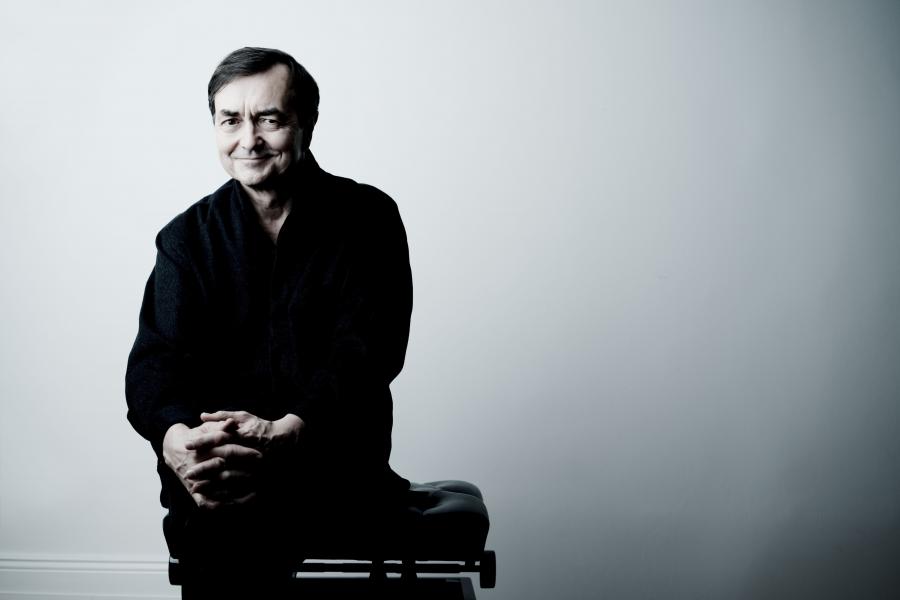
Pierre-Laurent Aimard. Photo: Marco Borggreve
3. Pierre-Laurent Aimard. Shriver Hall
Few pianists are connoisseurs of sound like Pierre-Laurent Aimard. Even in less than ideal performing conditions, in competition with a noisy ventilation system, the French pianist crafted a program of curiosities and revelations. From the Brittany coastline and the call of Messiaen’s “Le Courlis cendré” to the musical puzzle of Ligeti’s Musica ricercata, Aimard delighted and surprised. Even his rendition of Beethoven’s “Hammerklavier” was more subtle than forceful.
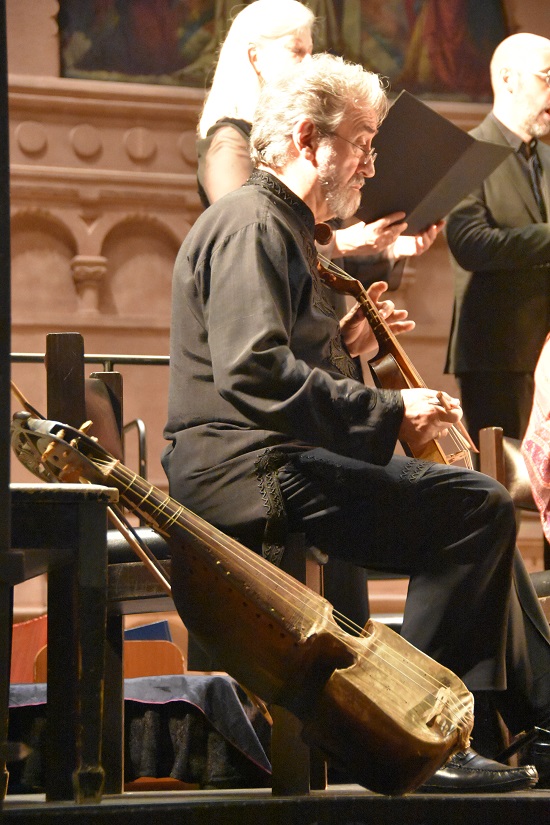
Jordi Savall (foreground) and soprano María Cristina Kiehr. Photo: Classical Movements.
4. Hespèrion XXI, Jordi Savall. St. Mark’s, Capitol Hill
In a quirk of fate, St. Mark’s Episcopal Church on Capitol Hill marked the feast day of Our Lady of Montserrat with the greatest solemnity this year. Jordi Savall led members of his ensemble Hespèrion XXI in music from the Llibre Vermell of Montserrat, in a version similar to but also evolved from his recording made in the 1970s. Soprano María Cristina Kiehr was unparalleled for the ardent, unforced, maternal warmth of her voice.
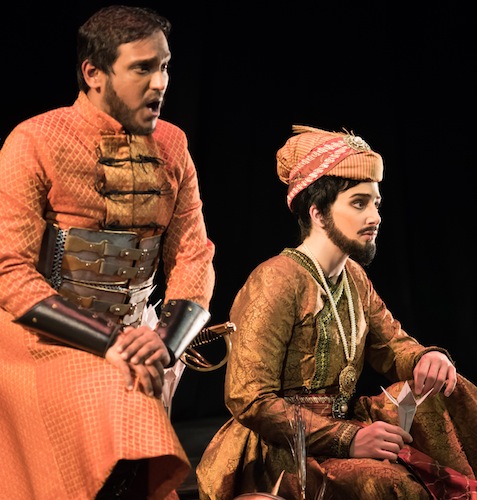
Asitha Tennekoon and Allegra De Vita in “Erminia.” Photo: Louis Forget
5. Alessandro Scarlatti: Erminia. Opera Lafayette
Opera Lafayette revived two rarities of the Italian baroque this year, both derived from Tasso’s Gerusalemme liberata, performed in fully staged versions. In Alessandro Scarlatti’s Erminia, completed in 1723, Allegra De Vita had an astounding trouser-role turn as Tancredi, complete with beard and utterly convincing male movement. It was just one example of this young singer’s extraordinary dramatic range and vocal prowess.
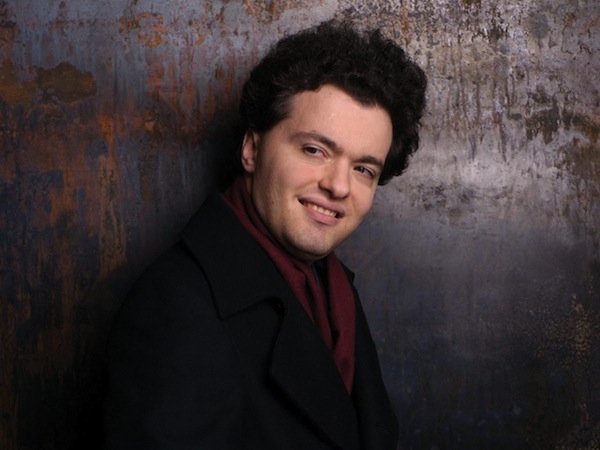
Evgeny Kissin
6. Evgeny Kissin. Washington Performing Arts
It had been a long two and a half years since Evgeny Kissin’s last recital in Washington. On a hiatus from performing, the Russian pianist got married, wrote a memoir, and composed some of his own music. His “Hammerklavier” outshone even Pierre-Laurent Aimard’s, with Beethoven that was visceral, anguished, and wistful. A second half of Rachmaninoff was capped by four encores, including a Kissin original, a jazzy Toccata equal parts Nikolai Kapustin and Art Tatum.
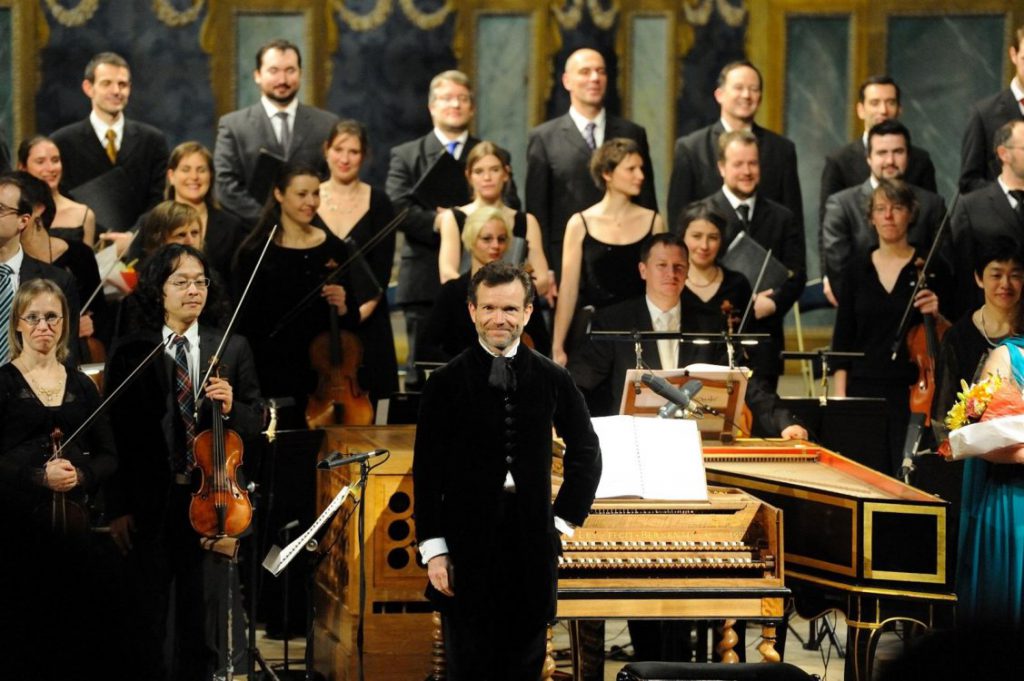
Christophe Rousset and Les Talens Lyrique
7. Christophe Rousset, Les Talens Lyriques. Library of Congress
Of all the composers one might have celebrated in 2018, François Couperin received almost no recognition. Only Christophe Rousset and his early music ensemble, Les Talens Lyriques, took notice of the 350th anniversary of the French composer’s birth, in a gorgeous concert at the Library of Congress. It was a chance to experience something like Couperin’s concerts for the close of Louis XIV’s day, the “Coucher du roi.” In addition to Rousset’s masterful turns at the harpsichord, soprano Amel Brahim-Djelloul was exquisite in the Leçons de ténèbres.
8. Kastalsky: Commemoration for Fallen Brothers. Washington National Cathedral
Leonard Slatkin, former music director of the National Symphony Orchestra, oversaw this ambitious project, a modern revival of Russian composer Alexander Kastalsky’s gigantic polyglot liturgical work commemorating the dead of World War I. For the single Washington performance the Cathedral Choral Society was joined by the Orchestra of St. Luke’s, the Clarion Choir, the Kansas City Chorale, and the Chamber Choir of St. Tikhon’s Monastery. A wild tapestry of styles, the piece proved endlessly fascinating, probably a once-in-a-lifetime experience.
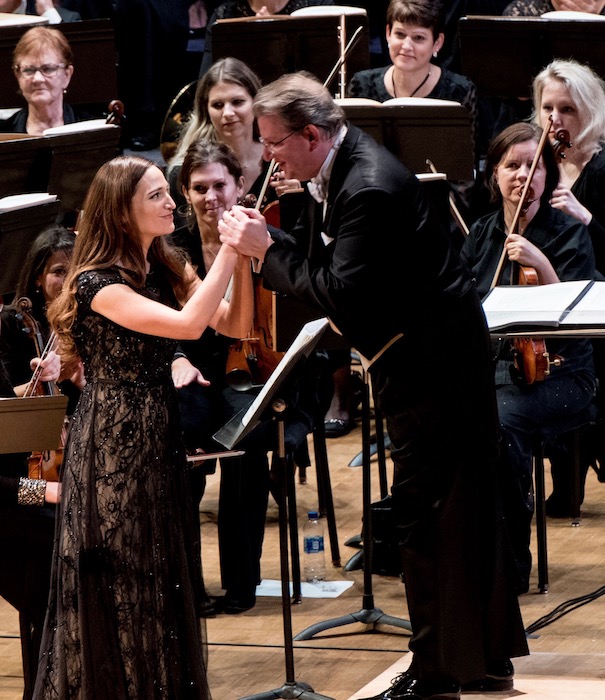
Kate Lindsey and Washington Concert Opera conductor Antony Walker. Photo: Don Lassell
9. Gounod: Sapho. Washington Concert Opera
It turns out, not surprisingly, that Gounod’s first opera did not deserve the utter oblivion into which it had fallen. Antony Walker led the first U.S. performance of the work this year with Washington Concert Opera. Working from the original 1851 score, Walker and his musicians reconstructed the lost orchestral parts through a process of trial and error. The opera proved an ideal vehicle for the demure, rich voice of mezzo-soprano Kate Lindsey, who gave dignity and pathos to the title role. The only disappointment was that the performance was not recorded for commercial release.
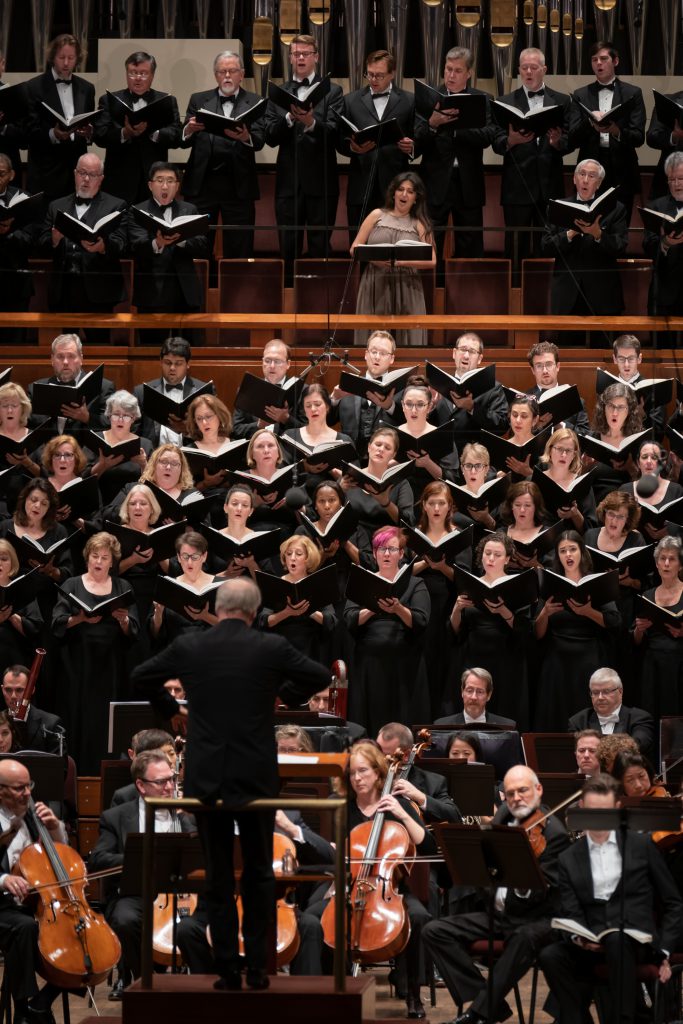
Gianandrea Noseda conducting the NSO in Britten’s “War Requiem.” Photo: Scott Suchman
10. Britten: War Requiem. National Symphony Orchestra, Gianandrea Noseda
Finally, marking the centenary of the end of World War I was one of the highlights of Gianandrea Noseda’s first season and a half at the helm of the National Symphony Orchestra. Unlike the conductor’s Verdi Requiem earlier in the year, this performance of Britten’s War Requiem was not principally about bombast, choral or orchestral. Tenor Ian Bostridge and baritone Matthias Goerne were outstanding in the solo reflections on Wilfred Owen’s anguished, angry poetry, as was the Children’s Chorus of Washington, a disembodied, angelic presence heard from a room just off stage.
Honorable Mentions
Baritone John Brancy and pianist Peter Dugan devised a clever, multifaceted program to mark the anniversary of the signing of the Armistice. Both Latvia and Lithuania celebrated their independence, dating from the end of World War I, with excellent concerts by the Latvian Radio Choir, at the Library of Congress, and the Mettis String Quartet, at the National Gallery of Art. The fine song recital by baritone Gerald Finley and pianist Julius Drake stood out for an outstanding, heart-stopping rendition of Schubert’s epic “Erlkönig.”
The Year in Ballet
Since Julie Kent’s tenure as artistic director of the Washington Ballet began in 2016, she has overseen a remarkable transformation of the company. Reported audience losses will hopefully be righted, not least because productions like February’s revival of John Cranko’s dramatically astute choreography of Romeo and Juliet should bring people back to support this fine local company.
Washingtonians are also lucky to have a regular rotation of the world’s best ballet companies visit the Kennedy Center. The highlight this year was the chance to experience Schlagobers, a rarely heard ballet score by Richard Strauss, presented in Alexei Ratmansky’s phantasmagoric choreography with American Ballet Theatre.
Best New Work
Washington National Opera’s American Opera Initiative had not produced a new opera that could be called great—until this year. Missy Mazzoli, a composer with a major success already under her belt, followed up with the excellent one-hour opera Proving Up. Based on a surreal frontier story by the young American writer Karen Russell, the opera explores haunted soundscapes both vocal and instrumental. Soprano Leah Hawkins was a sensation in the powerful role of Ma Zegner.
Worst New Work
All composers have occasional misses, but Mason Bates seems to be on a string of them. His work curating a trendy concert series at the Kennedy Center vies for the composer’s time, perhaps to his detriment. The NSO’s latest performance of a Bates world premiere, Art of War, was just as underwhelming as the last several pieces of his performed by the ensemble.
Best New Additions
The Kennedy Center scored a coup this year, as the Dover Quartet began its three-year term as quartet-in-residence at the venue on the Potomac. Their inaugural concert in October featured exquisite Schubert and a convincing rendition of a (better) piece by Mason Bates.
Christopher Bell took over the leadership of The Washington Chorus last year, and the promise of that appointment has held true. Among several intriguing performances by this group was their crackerjack participation in the screening of Koyaanisqatsi with a live performance of Philip Glass’s epoch-marking score.
Worst Loss
It won’t happen until February, but Kim Pensinger Witman will be stepping down after 22 years as head of Wolf Trap Opera Company. She was tireless in her efforts to travel the country and bring the most promising young singers to our area each summer. Her successor, Lee Anne Myslewski, has worked alongside her since 2006.
Most Welcome Return
What happened after Truls Mørk’s last performance in the Washington area, a guest appearance with the National Symphony Orchestra in 2005? The Norwegian cellist was sidelined by a rare form of encephalitis that left his shoulder paralyzed, requiring months of physiotherapy and rehabilitation. He returned to the platform in 2011, but it took until this year for him to come back to our part of the world, in a lovely recital with the outstanding pianist Behzod Abduraimov at Baltimore’s Shriver Hall.
Lux aeterna luceat eis
In 2018 we bid farewell to soprano Montserrat Caballé, musicologist Walther Dürr, José Antonio Abreu (founder of El Sistema in Venezuela), violist Michael Tree, film composer Miloš Forman, British composer Oliver Knussen, violinist Robert Mann, composer Matt Marks, poet and librettist J.D. McClatchy, composer George Walker, conductor Jean-Claude Malgoire, mezzo-soprano Huguette Tourangeau, and conductor Gennady Rozhdestvensky, as well as author Tom Wolfe, choreographer Paul Taylor, minimalist artist Robert Morris, French singer Charles Aznavour, and Detroit legend Aretha Franklin.
Among distinguished local luminaries, Washingtonians mourned NSO violinist Hyun-Woo Kim, who died suddenly in May; former Librarian of Congress James H. Billington; and art collector and patron Peggy Cooper Cafritz.
